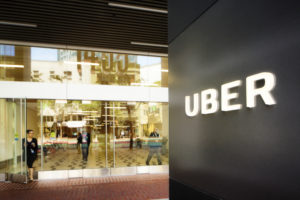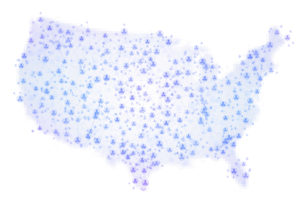** Uber Sanctioned for Their Tactics in Consumer Class Action Case **
By: Brent E. Johnson

Some interesting detours have developed in the Uber anti-trust consumer class action in the Southern District of New York (Meyer v. Kalanick, No. 1:15-cv-09796-JSR (S.D.N.Y December 12, 2015)).
The first is that the case was actually not bought against Uber, but against its CEO Travis Kalanick, possibly in order to avoid an arbitration clause in the Uber User Agreement. Uber was successful in joining the corporation as a necessary party (Meyer v. Kalanick, No. 15 CIV. 9796, 2016 WL 3509496, at *3 (S.D.N.Y. June 20, 2016)). The court heard argument on whether the joinder case should be subject to the Uber arbitration agreement on July 14, 2016 (Dkt. No. 91).
The second detour – and not one you’d expect – Uber and its lawyers (and the private investigative firm Ergo hired by the legal team) are accused of fraudulent conduct during their informal investigation of opposing counsel and opposing parties. Plaintiff’s counsel began to get suspicious when his friends, colleagues and acquaintances started receiving phone calls in which, it was alleged, false statements were made that the caller was compiling a profile of up-and-coming labor lawyers in the United States. Meyer v. Kalanick, No. 15 CIV. 9796, 2016 WL 3189961, at *1 (S.D.N.Y. June 7, 2016). Similar phone calls were allegedly made regarding the putative class representative – purportedly profiling his work as an environmental conservationist. Plaintiff’s counsel confronted Defense counsel about these suspicious calls – and they initially responded by denying any involvement, then backtracked and admitted they had hired Ergo (but asserted that Uber or counsel did not direct Ergo to make any misrepresentations). Id. This was enough for the court to order discovery on what Uber and its lawyers knew and did – taking the extraordinary step of allowing depositions of Uber’s in-house legal director and Ergo over Uber’s privilege objections. Id. at *2. The court also ordered legal communications be turned over for in-camera review to determine if defense counsel was involved in the alleged fraud. Id. at *3. Following the Ergo discovery, Plaintiff’s counsel moved for sanctions under Rule 37 (Dkt. No. 103) arguing that Uber was at best reckless in its oversight of the investigation – and at worst part of the fraud. Id. at 11.
Judge Rakoff ruled on the sanctions motion on July 29, 2016. Meyer v. Kalanick, No. 15 CIV. 9796, 2016 WL 3981369, at *1 (S.D.N.Y. July 25, 2016). Judge Rakoff began his opinion and order with this salvo: “It is a sad day when, in response to the filing of a commercial lawsuit, a corporate defendant feels compelled to hire unlicensed private investigators to conduct secret personal background investigations of both the plaintiff and his counsel. It is sadder yet when these investigators flagrantly lie to friends and acquaintances of the plaintiff and his counsel in an (ultimately unsuccessful) attempt to obtain derogatory information about them.” Id. Judge Rakoff noted that Uber claimed work-product privilege over relevant material – but at the same time – argued that the purpose of the investigation was not to secure derogatory information about Plaintiff and Plaintiff’s counsel (but merely to determine if there was a security threat to Uber personnel). Id. at *4. The court noted that Uber could not have its cake and eat it too. If Uber wanted to allege that the purpose of the investigation was security–focused, then it was not in anticipation of litigation and the privilege did not apply. As to the investigative methods employed by Ergo, Judge Rakoff was scathing. He characterized lying to the target witnesses about the nature and intent of the calls as inherently fraudulent – and materially so. Id. at *6. He rejected the argument that a party to litigation may properly make misrepresentations in order to advance its own interests vis-a-vis its legal adversaries. Id. at * 7. The court further observed that Uber’s in-house and external counsel are bound by the New York Rules of Professional Conduct to adequately supervise non-lawyers retained to do work in order to ensure that the non-lawyers do not engage in actions that would be a violation of the Rules if a lawyer performed them. Id. (citing N.Y. Rules of Professional Conduct § 5.3). Judge Rakoff was also scornful of Ergo for not licensing in New York as a private investigative firm and for recording calls with targets located in states (Connecticut and New Hampshire, for example) where unilateral recording of conversations is illegal. Id. at *8. Judge Rakoff enjoined the Uber defendants from using any of the information obtained through Ergo’s investigation in any manner, including by presenting arguments or seeking discovery concerning the same and enjoined both Uber and Ergo from undertaking any further personal background investigations of individuals involved in the litigation. Id. The court noted that the parties had already come to a confidential agreement as to the payment by Uber of Plaintiff’s fees in bringing the motion. Id.
Uber’s litigation detour provides some valuable insights into how judges will likely treat “enhanced investigation techniques” during formal discovery – and further proves the maxim that it is not the original scandal that gets people in the most trouble – it’s the attempted cover-up.



